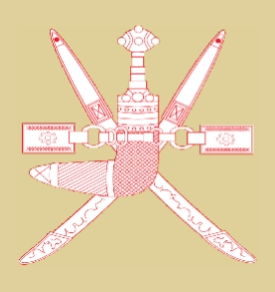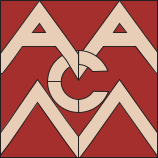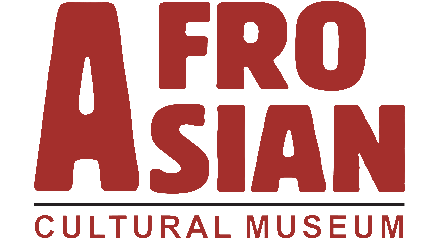Oman

National Flag
Oman, officially the Sultanate of Oman, is an Arab country in southwest Asia on the southeast coast of the Arabian Peninsula. It borders the United Arab Emirates on the northwest, Saudi Arabia on the west and Yemen on the southwest. The country also contains Madha, an exclave enclosed by the United Arab Emirates, and Musandam, an exclave also separated by Emirati territory.

Emblem
Profile:
Official Name - Sultanate of Oman
Nationality - Omani
Chief City - Muscat
Location - Southwest Asia
Population - 2,577,000
Area - 309,550 km2
Official Languages - Arabic
Government - Islamic Absolute Monarchy
Currency - Rial (OMR)
Independence - 1651

Map
national anthem
Ya Rabbana Ehfid Lana
Jalalat Al Sultan
Waashabi Fee Al'wtan
Bialeizy Walaman.
Walyadum Muoayadda,
Aahilan Momajjada;
Bilnufoosi Yuftda.
Walyadum Muoayadda,
Aahilan Momajjada;
Bilnufoosi Yuftda.
Ya Oman, Nahnoo Min
Ahd Il Nabi
Awfiya Min K'ram Al Arabi.
Abshiry Qaboos Jaa
Faltubarakhu 'I Sama.
Waasidy Waltoq'hi Bilduoaa
TRANSLATION
O Lord, protect for us our Majesty the
Sultan
And the people in our land,
With honour and peace.
May he live long, strong and
supported,
Glorified be his leadership.
For him we shall lay down our lives.
May he live long, strong and
supported,
Glorified be his leadership.
For him we shall lay down our lives.
O Oman, since the time of the Prophet
We are a dedicated people amongst
the noblest Arabs.
Be happy! Qaboos has come
With the blessing of Heaven.
Be cheerful and commend him to the
protection of our prayers.

oman-cityscape

Giant Clay Jugs

Sultan Qaboos Grand Mosque, Muscat
geography
The country's main cities are the capital city Muscat, Matrah and Sohar in the north, and Salalah in the south. The peninsula of Musandam (Musandem), which has a strategic location on the Strait of Hormuz, is separated from the rest of Oman by the United Arab Emirates and is thus an exclave.
climate
Annual rainfall in Muscat averages 10 cm (4 in), falling mostly in January. Dhofar is subject to the southwest monsoon, and rainfall is up to 64 cm (25 in). The climate generally is very hot, with temperatures reaching 54°C (129°F) in the hot season, from May to October.
language
Although Arabic is Oman's official language, there are native speakers of different dialects, as well as Balochi, Swahili and French which are also widely spoken due to the historical relations with Zanzibar. A significant number also speak Hindi because of Indian migrants.
religion
About 75% of the population consists of Ibadhi Muslims and other minorities make up the remainder of the population. The majority of non-Muslims are immigrant workers from South Asia, Indian Hindus and Christians.
cuisine
The Cuisine of Oman is fairly simple. Chicken, fish, and mutton are regularly used in dishes. A favorite drink is laban, a salty, buttermilk yogurt drink. Dates, dry fruits and pistachio nuts are also very popular.
festival
The Muscat Festival is held at the beginning of every year in which traditional dances are held. Another popular event is the Khareef Festival, which is held in August in Salalah, Dhofar.
culture
Oman is famous for its khanjar knives, which are curved daggers worn during holidays as part of ceremonial dress. Today traditional clothing is worn by most Omani men, a collarless robe called a dishdasha. Women wear hijabs and abayas. A very important part of Omani culture is hospitality. If invited into an Omani house, a visitor is likely to be greeted with a bowl of dates, qahwa and fruit.
economy
Oman produces Dates, Limes, Grains and vegetables. Oil production is extracted and processed by Petroleum Development Oman. Commercial export of oil began. Many oil fields have been found and developed. Oman's mineral resources include chromite, dolomite, zinc, limestone, gypsum, silicon, copper, gold, cobalt and iron. Oman is known for its popular tourist attractions because of its Wadis, deserts, beaches, and mountain areas which make Oman unique.

Oman Sultanate, Muscat, Riyam Park, monument in the shape of a giant censer

Emirats Arabes Unis, Oman, Muscat, Oman girl

An old goatherd spins wool


